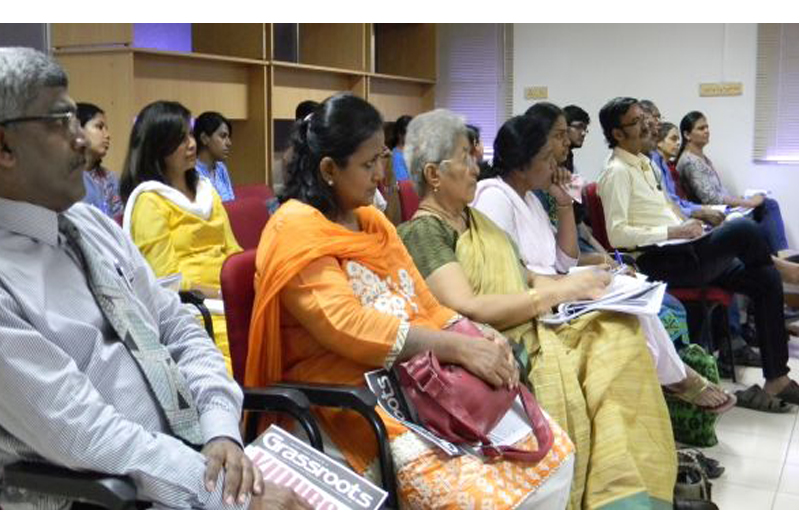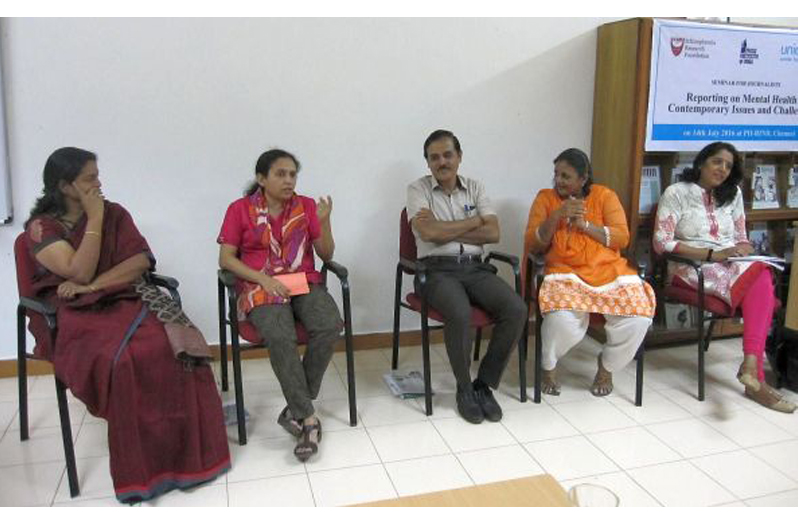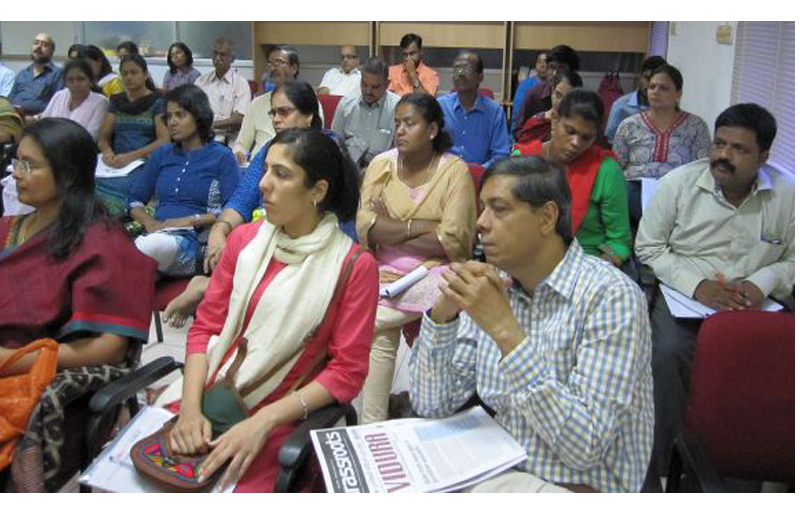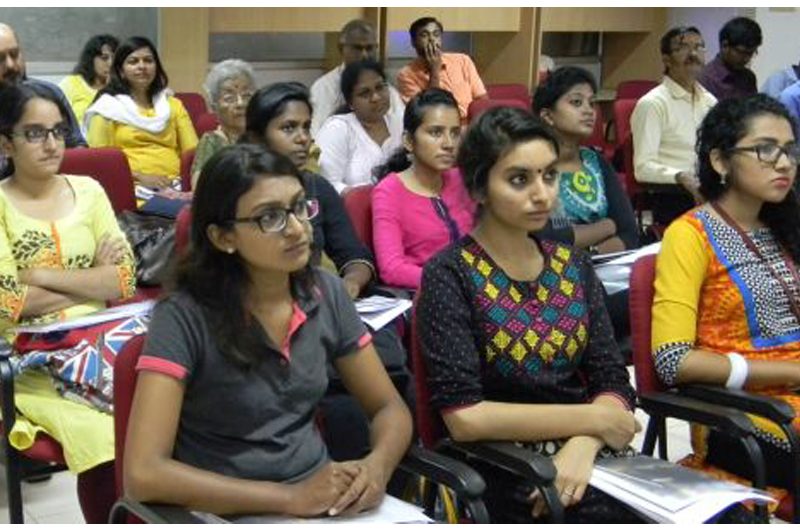The Schizophrenia Research Foundation (SCARF), the Press Institute of India and UNICEF conducted on July 14 a daylong seminar for journalists titled, Reporting on Mental Health: Contemporary Issues and Challenges. More than 40 people, comprising journalists, journalism students and practitioners from the field of mental health, attended.
Dr Mohan Raj, consultant psychiatrist, set the ball rolling with his presentation on addiction to social media. Stressing that no one was “100 per cent mentally fit or ill,” he termed social media addiction a hindrance to productivity and socialisation. Those who were addicted to social media showed the same type of brain changes that happened to people who took additive drugs, he said.

Dr Suresh Kumar, consultant psychiatrist, Psymed Hospital, elaborated on substance dependence. He said reports that focused on the impact on women were sure to draw the attention of policy makers. Parkodi Palaniappan, social activist, briefly covered the laws and rights pertaining to mental health. She talked of euphemistic terms such as ‘differently abled’ preferred by the media and said they would rather that their disability be spelt out, which would also make it easier for them to access their legal rights.

A panel comprising R. Venkatesh, executive editor, Kalki; Ramya Kannan, chief of bureau, The Hindu, Tamil Nadu; Pushpa Narayan, senior assistant editor, The Times of India, Chennai; and Dr Mangala, assistant director, SCARF; discussed media perspectives on mental health. Dr Jaya Shreedhar, adjunct faculty, Asian College of Journalism, moderated.
Aruna Rathnam, education specialist, UNICEF – Tamil Nadu and Kerala, dwelt briefly on children and mental health. She pointed out the lack of adequate sensitive vocabulary in regional languages to describe those with mental illnesses, and how it cast a shadow over efficient reporting.

Earlier, Sashi Nair, director-editor, Press Institute of India, welcomed the gathering. He pointed out that the whole issue of mental health was complex, and journalists needed to show sensitivity while reporting on it. Dr R. Thara, director, SCARF, said that schizophrenia was a serious disease affecting nearly seven to eight million people across India. It was found that most people got knowledge about mental health from the media, be it from films or from print journalism, and hence the decision to tackle the media in order to achieve a multiplying effect in terms of bringing about a change in attitude among the general public, she pointed out.



 from Webdoux
from Webdoux